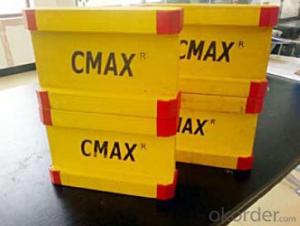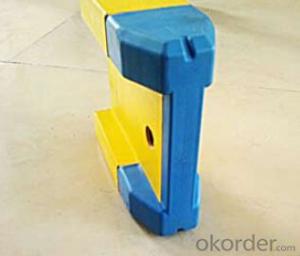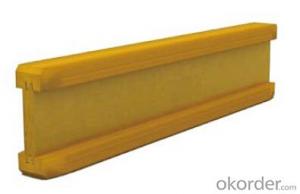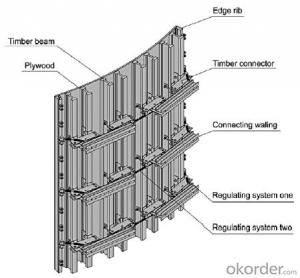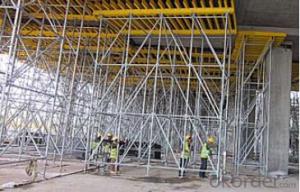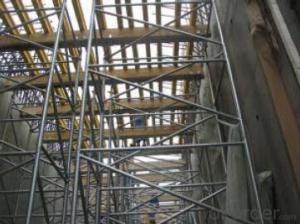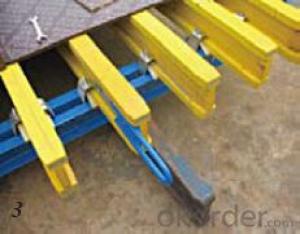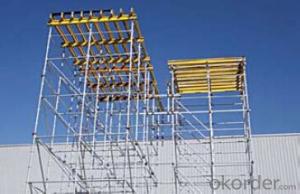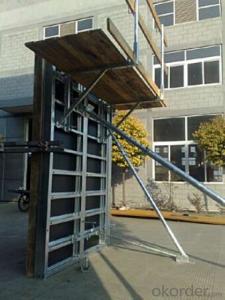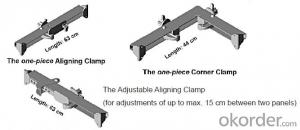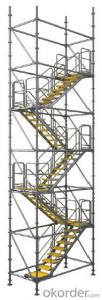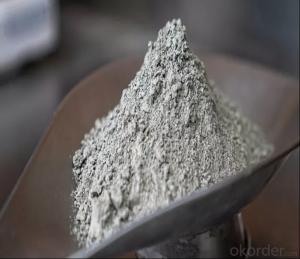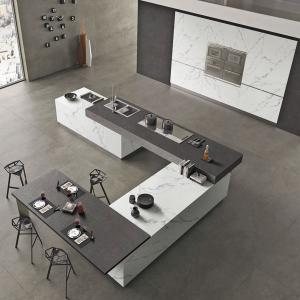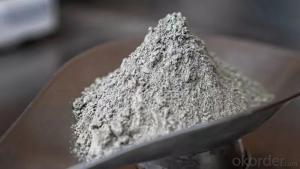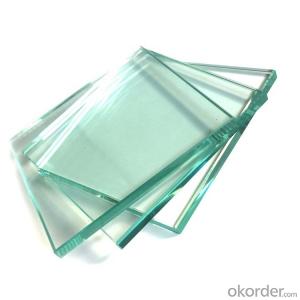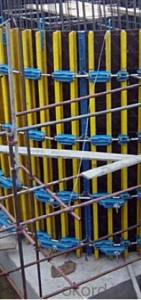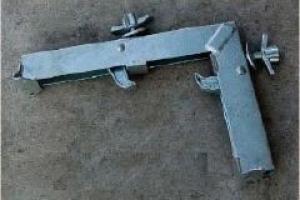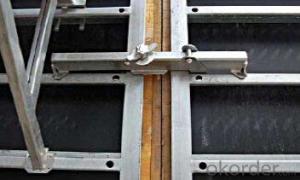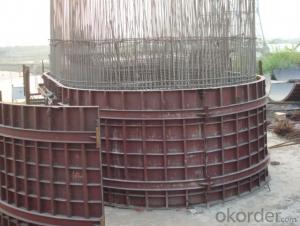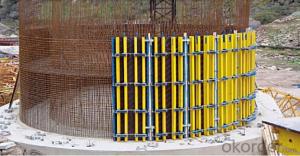Timber-Beam Formwork for building Construction
- Loading Port:
- Tianjin
- Payment Terms:
- TT OR LC
- Min Order Qty:
- 50 m²
- Supply Capability:
- 1000 m²/month
OKorder Service Pledge
Quality Product, Order Online Tracking, Timely Delivery
OKorder Financial Service
Credit Rating, Credit Services, Credit Purchasing
You Might Also Like
Plywood --- make perfect concrete surface
WISA-Form Birch is a coated special plywood using in the formwork systems where high
requirements are set on the concrete surface and the times of reuses.
With CNBM timber beam & WISA plywood, the formwork is low weight but high load capacity, it is
widely used in construction.
Characteristics:
◆ Component with high standardization.
◆ Assembling in site, flexible application.
◆ Light weight, easy transportation and storage.
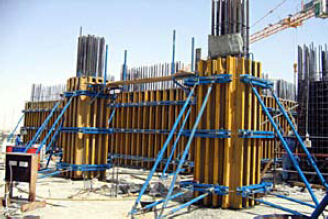
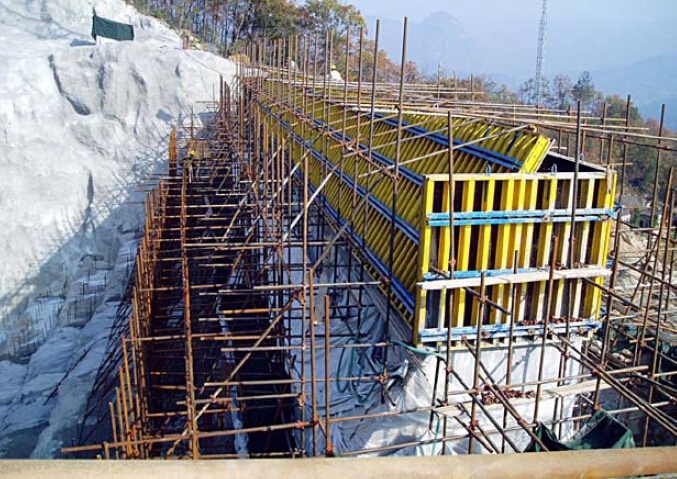
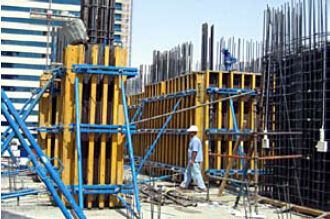
- Q:Can steel formwork be customized to meet specific project requirements?
- Yes, steel formwork can be customized to meet specific project requirements. Steel formwork is a versatile and flexible construction material that can be easily modified and adjusted to fit different shapes, sizes, and dimensions. It can be cut, welded, and reshaped to match the specific requirements of a project. Additionally, steel formwork allows for the creation of complex and intricate structures, making it suitable for a wide range of construction projects. The customization of steel formwork enables builders and contractors to achieve precise and accurate results, ensuring that the final structure meets the desired specifications and design requirements.
- Q:How does steel formwork contribute to improved construction site logistics?
- Steel formwork contributes to improved construction site logistics in several ways. First and foremost, steel formwork is durable and reusable, which reduces the need for frequent replacement and disposal. This leads to significant cost savings and reduces the amount of waste generated on the construction site. Additionally, steel formwork is highly versatile and can be easily customized to meet specific project requirements. This flexibility allows for efficient and precise construction, resulting in improved productivity and reduced construction time. With steel formwork, construction site activities can be streamlined, making it easier to manage and coordinate various tasks. Furthermore, steel formwork provides enhanced safety on construction sites. Its sturdy and rigid structure ensures stability during concrete pouring and curing processes, minimizing the risk of accidents or structural failures. This results in a safer working environment for construction workers and reduces the likelihood of delays or disruptions caused by safety issues. Moreover, steel formwork offers better control over the quality of the concrete structure being built. Its smooth surface and accurate dimensions help achieve consistent and precise finishes. This reduces the need for rework or corrections, saving time and reducing material wastage. Lastly, steel formwork is easy to handle and transport due to its lightweight nature compared to traditional timber formwork. This simplifies logistics planning and allows for faster and more efficient movement of formwork components across the construction site. The ease of handling also reduces the physical strain on workers, leading to increased productivity and reduced risk of injuries. In conclusion, steel formwork contributes to improved construction site logistics by offering durability, versatility, safety, quality control, and ease of handling. These benefits contribute to cost savings, reduced waste, enhanced productivity, and a safer working environment, ultimately leading to more efficient and successful construction projects.
- Q:What are the different safety training requirements for steel formwork installation?
- The different safety training requirements for steel formwork installation typically include proper use and handling of equipment, knowledge of safety protocols and procedures, understanding of personal protective equipment (PPE), awareness of potential hazards and how to mitigate them, and training on emergency response and evacuation procedures. Additionally, workers may need to undergo specific training related to fall protection, scaffolding, and other specialized tasks involved in steel formwork installation.
- Q:Can steel formwork be used for both slab and column construction?
- Yes, steel formwork can be used for both slab and column construction. Steel formwork offers several advantages over other types of formwork, such as wood or plastic. It is highly durable and can withstand the pressure exerted by fresh concrete, making it suitable for use in both slab and column construction. For slab construction, steel formwork provides a strong and rigid support system, ensuring that the concrete is poured and cured in the desired shape and dimensions. The steel panels can be easily assembled and disassembled, allowing for efficient and repeated use on multiple projects. This saves both time and money in the long run. Similarly, steel formwork can also be used for column construction. The adjustable panels can be easily customized to various column sizes and shapes, providing flexibility in design. Steel formwork also offers a smooth surface finish, resulting in high-quality columns. Moreover, steel formwork is resistant to warping, swelling, and shrinking, which can occur with other types of formwork materials. This ensures that the concrete structure is built accurately and maintains its structural integrity over time. Overall, steel formwork is a versatile and reliable option for both slab and column construction. Its strength, durability, and ease of use make it a popular choice among construction professionals.
- Q:Can steel formwork be used for both residential and commercial construction projects?
- Yes, steel formwork can be used for both residential and commercial construction projects. Steel formwork is a versatile and durable option for creating concrete structures, including walls, columns, beams, and slabs. It offers several advantages such as high load-bearing capacity, dimensional accuracy, and reusability, making it suitable for various construction projects. In residential construction, steel formwork can be used for building foundations, retaining walls, and even for creating decorative elements. In commercial projects, it can be used for constructing office buildings, shopping malls, industrial facilities, and other large-scale structures. Additionally, steel formwork allows for faster construction and better quality control, resulting in time and cost savings for both residential and commercial projects.
- Q:Can steel formwork be used for concrete structures in corrosive environments?
- Steel formwork can be used for concrete structures in corrosive environments, but special precautions need to be taken to ensure its durability and longevity. Corrosive environments, such as those with high levels of moisture or exposure to chemicals, can cause steel to rust and deteriorate over time. To mitigate this risk, the steel formwork should be properly coated with corrosion-resistant materials, such as epoxy or galvanized coatings, to provide a protective barrier against the corrosive elements. Regular maintenance and inspections should also be carried out to identify and address any signs of corrosion or damage. Additionally, alternative formwork materials, such as plastic or fiber-reinforced polymers, may be more suitable for extremely corrosive environments as they offer superior resistance to corrosion. Ultimately, the decision to use steel formwork in a corrosive environment should be based on thorough evaluation of the specific conditions and the implementation of appropriate preventive measures to ensure the long-term durability of the concrete structure.
- Q:Can steel formwork be used for underground tunnels?
- Yes, steel formwork can be used for underground tunnels. Steel formwork is a versatile and durable material that is commonly used in construction projects, including underground tunnels. It is able to withstand the pressure and forces exerted by the surrounding soil and rock, making it suitable for use in the construction of tunnels. Additionally, steel formwork is easy to assemble and disassemble, allowing for efficient construction and maintenance of tunnels. Its strength and durability make it a popular choice for underground tunnel construction, providing a reliable and long-lasting solution.
- Q:How does steel formwork handle different concrete surface coloring techniques?
- Steel formwork is a versatile and durable option for concrete construction, but it does not directly impact the coloring techniques used on the concrete surface. The coloring techniques, such as staining, stamping, or painting, are applied after the concrete has been poured and cured. Steel formwork primarily focuses on providing structural support and shape to the concrete during the pouring and curing process.
- Q:Are there any specific maintenance requirements for steel formwork systems?
- Yes, there are specific maintenance requirements for steel formwork systems. Steel formwork systems are used in construction to create temporary molds or frameworks for pouring concrete. These systems are designed to be durable and long-lasting, but regular maintenance is necessary to ensure their proper functioning and longevity. One important maintenance requirement for steel formwork systems is to regularly clean and remove any debris or concrete residue from the surfaces. This can be done by using a wire brush or high-pressure water jet to remove any hardened concrete or build-up. Cleaning the formwork prevents the accumulation of materials that can affect the quality and appearance of future concrete pours. Additionally, it is crucial to inspect the steel formwork system for any signs of damage or wear. This includes checking for cracks, dents, or rust on the steel components. If any damage is found, it should be repaired promptly to prevent further deterioration and to maintain the structural integrity of the formwork. Another maintenance requirement is to lubricate the moving parts of the steel formwork system. This includes hinges, locks, and adjustable parts that allow for easy assembly and disassembly. Lubrication helps to prevent corrosion, ensures smooth operation, and prolongs the lifespan of the formwork system. Furthermore, regular inspection of the formwork system's alignment and stability is necessary. This ensures that the formwork remains level and securely in place during concrete pouring. Any misalignment or instability should be addressed immediately to prevent accidents or structural issues during construction. Overall, proactive maintenance of steel formwork systems is essential to ensure their proper functioning, durability, and safety. Regular cleaning, inspection, repair, and lubrication are key to maintaining the quality and longevity of these systems, ultimately contributing to successful construction projects.
- Q:Can steel formwork be used for structures with high corrosion resistance requirements?
- Structures with high corrosion resistance requirements may not be suitable for steel formwork. Moisture and specific environmental conditions can cause corrosion in steel, which can ultimately weaken the formwork and compromise the concrete's structural integrity. For optimum corrosion resistance, it may be more suitable to consider alternative materials like fiberglass, aluminum, or plastic formwork. These materials are resistant to corrosion and can endure harsh conditions, making them a better choice for structures with high corrosion resistance requirements.
1. Manufacturer Overview |
|
|---|---|
| Location | |
| Year Established | |
| Annual Output Value | |
| Main Markets | |
| Company Certifications | |
2. Manufacturer Certificates |
|
|---|---|
| a) Certification Name | |
| Range | |
| Reference | |
| Validity Period | |
3. Manufacturer Capability |
|
|---|---|
| a)Trade Capacity | |
| Nearest Port | |
| Export Percentage | |
| No.of Employees in Trade Department | |
| Language Spoken: | |
| b)Factory Information | |
| Factory Size: | |
| No. of Production Lines | |
| Contract Manufacturing | |
| Product Price Range | |
Send your message to us
Timber-Beam Formwork for building Construction
- Loading Port:
- Tianjin
- Payment Terms:
- TT OR LC
- Min Order Qty:
- 50 m²
- Supply Capability:
- 1000 m²/month
OKorder Service Pledge
Quality Product, Order Online Tracking, Timely Delivery
OKorder Financial Service
Credit Rating, Credit Services, Credit Purchasing
Similar products
New products
Hot products
Hot Searches
